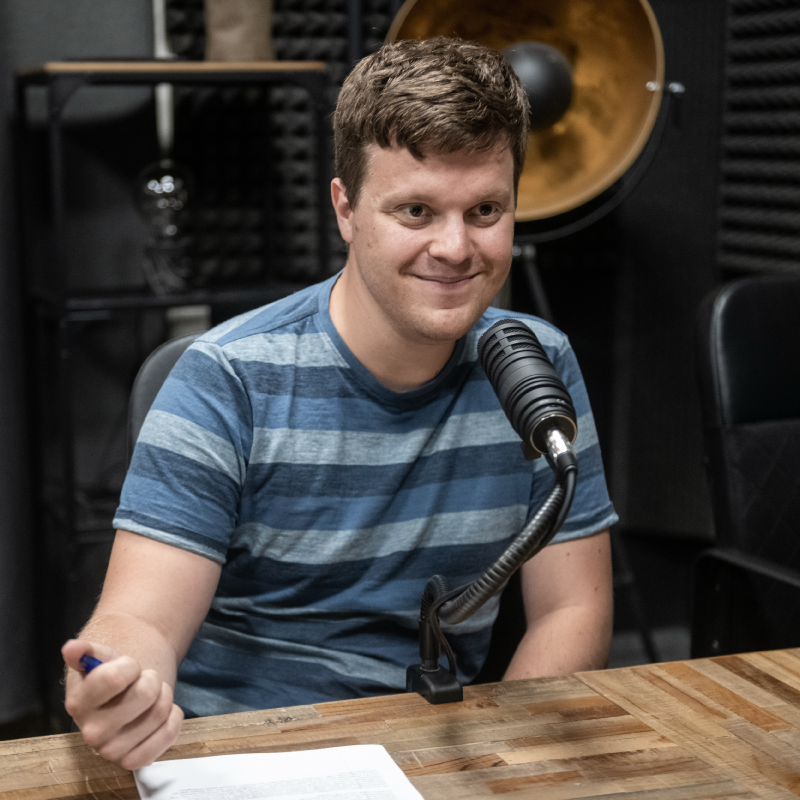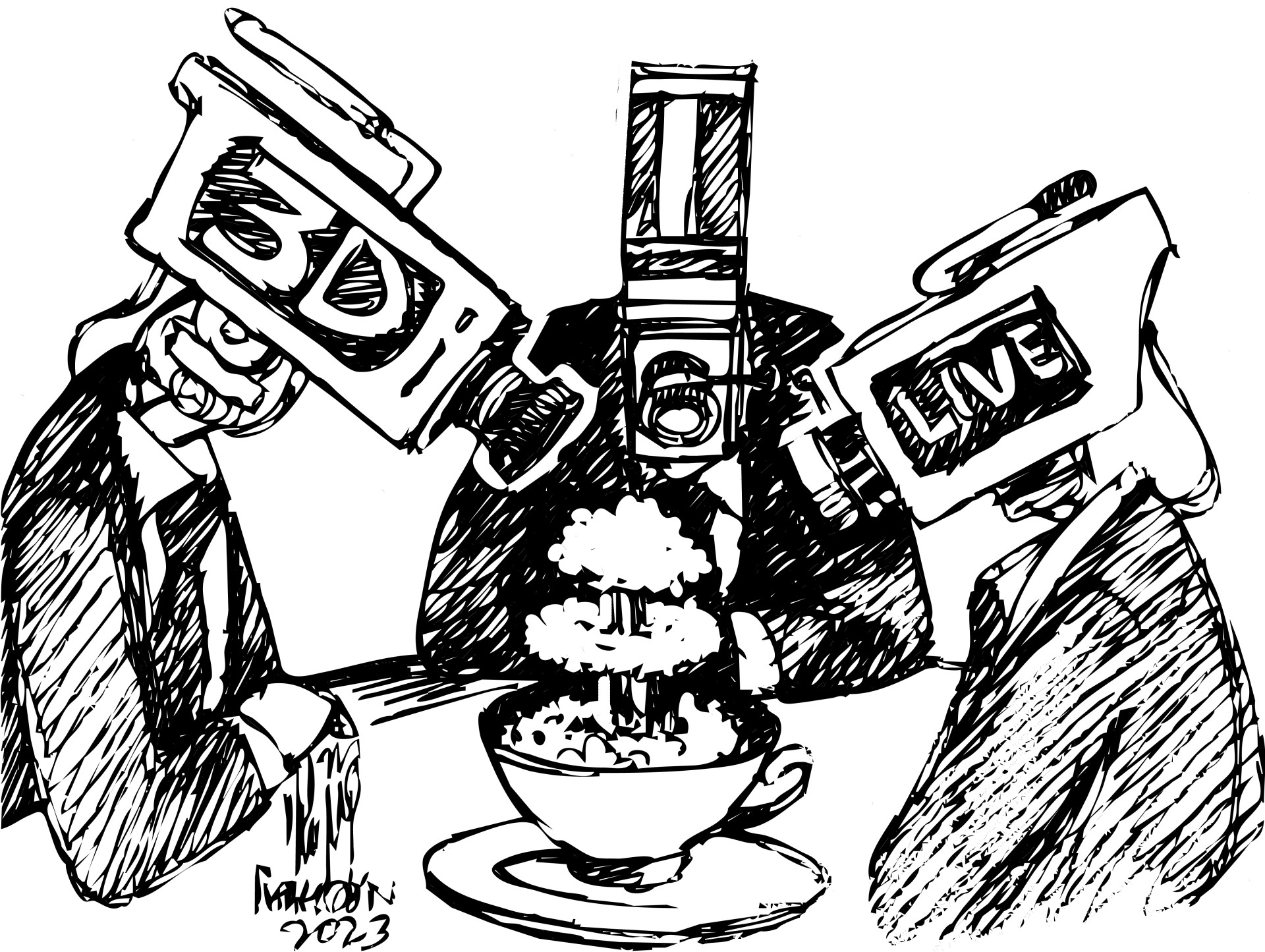
Hungary
Hungary
Hungary
András Rostoványi
András Rostoványi
András Rostoványi
Journalist and Whistle-blower
Journalist and Whistle-blower
Journalist and Whistle-blower

Hungary
András Rostoványi
Journalist and Whistle-blower
„There is always a possibility that the government might use Pegasus on me, a espionage system, which can tap your phone.“

VITA
András Rostoványi is a Hungarian journalist and whistle-blower, who fights against political influence in a country where the governing Fidesz party strives against media. He started his professional career in 2015 as a Foreign News Desk editor at the Hungarian Public Media (MTVA), where he regularly faced pressure from senior editors to conform to pro-Fidesz narratives. He tried to resist those efforts, and inform the public about them in various ways. He has even been featured in a documentary titled "Hungarian Playbook" (Ungarn – Propaganda gegen Pressefreiheit) by the German TV ZDF, where he talked about his first-hand experience on camera. After he left MTVA at the end of 2019, he became an editor at the Foreign News Desk a Népszava, the last remaining independent political daily newspaper in Hungary. He covers Hungarian foreign policy, US politics, MENA region and Asia (including China), as well as human rights issues. He is committed to giving voice to ordinary civilians and activists in order to show how complex geopolitical developments affect local communities.
You worked at the Hungarian Public Media. What was the moment you realized you have to leave?
Just to give you some context: the Hungarian Public Media hired many young journalists at once (including me), because they needed to boost their workforce to setup their new news channel. The management seems to have counted on the fact that most of the newcomers are young and inexperienced, thus easy to be convinced to unquestioningly carry out orders, like soldiers do. However, some of us were well aware of the fact that the television is under the influence of the ruling party Fidesz. I even thought we could change the TV from the inside to get rid of the influence. That is why I began to work for the national broadcaster. I have considered more than once to quit, but the ultimate decision came at an editorial meeting before the European Parliament elections. In the meeting, which was secretly recorded by one of us, the head of the foreign affairs team said we have to follow the government line or we should quit. This didn't come as a shock, we all understood this is what was expected from us. However, after this, I could not pretend any more that I do not understand what is going on in the public media. In the end, half a year later, I left and I found a new job at Népszava, but the last weeks of my work with the public media were very hard.
I believed my job was supposed to be impartial and unbiased. However, the supervisor from the meeting was urging us to do journalism in line with a government opinion and that is not public media journalism.
Which important impact do human rights defenders have?
I highly appreciate human rights defenders and their courage to openly criticize even the most repressive regimes. I once interviewed Joshua Wong, a 27-year-old pro-democratic activist from Hong Kong. During COVID-19, he was protesting in a video game "Animal Crossing" by decorating his virtual island with a banner saying "Free Hong Kong, revolution now." He subsequently shared a screenshot on Twitter and others joined the protest as well. Chinese online stores responded by removing the game from the shelves. He is now in a Hong Kong prison for various trumped-up charges. What astonished me was how creative he was.
Do you feel pressure from the Fidesz government or others directed against your journalistic work or everyday life?
There are some political pressures on our newspaper, Népszava. We are the most read print daily. Yet, almost all companies in Hungary are actually afraid to buy advertisements from us, because they fear losing access to government tenders and being harassed by the Hungarian authorities. It is also challenging to get some additional revenue from abroad given that our newspaper is only available in Hungarian.

Regarding pressure directed towards me personally, I can think of two situations. Firstly, some of my opinion pieces from time to time are quoted out of context on a pro-government website, Mandiner. I know that, because I usually receive one or two hateful emails or Facebook messages. I usually react to them in a polite manner and ask: what is the problem? I am answering those hate messages, because I want to show that I am also a human, I am their fellow countryman who loves Hungary, but thinks differently. In this polarized society, it is easy to dehumanize others. Secondly, there is always a possibility that the government might use Pegasus on me, a espionage system, which can tap your phone. Then I think, I do not have much to hide. I have some aces up my sleeve as an insurance. Moreover, another form of pressure appearing in media are smear campaigns directed towards certain persons. These campaigns are unfortunately already normalized in the pro-Fidesz media.
Which changes could improve the independence of the media in Hungary?
Firstly, I think that the EU could somehow contribute to the cooperation among the European media outlets by facilitating a common dialogue, thus helping them to create connections with each other. It is often difficult to write about another country's problems from an outside perspective. Having international connections in journalism would make reporting about foreign affairs much easier. Secondly, I do not think that mere investments from foreign sources would help to strengthen media independence in Hungary. Investments from abroad can actually give rise to the government's smear campaigns against the receivers of foreign funds. In those campaigns, the government can accuse certain journals of serving the foreign interests by being dependent on the money-giver. The Hungarian government and pro-Fidesz outlets are already using this narrative by labelling some outlets as part of the so-called "dollar media". Shortly, any foreign support comes with a risk of your trustworthiness in the eyes of the leaders. Thirdly, I would like to mention media literacy workshops, which would deal with the problem of propaganda that Hungarian society often does not recognize. Last, but not least, the EU could also help by making big tech companies hand over their advertisement revenues and making trustworthy news outlets more valued in their algorithms (see the Australian model). The EU should also demand the platforms to take responsibility for their own content. It should be possible to penalise them in case they are spreading disinformation, or facilitating smear campaigns in exchange for ad revenues.
Hungary
